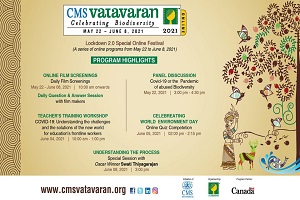The warming Arctic tundra will make it harder for the world to curb climate change, as thawing permafrost and wildfires release greenhouse gases that are not fully accounted for in global emissions agreements, a study said on Monday.
As temperatures rise and permafrost thaws, carbon dioxide and methane trapped within the long-frozen soil are released. The deeper the thaw, the more gas is released.
That threatens to create a feedback loop that contributes to even more warming of the atmosphere, scientists warn in a study published in the journal Proceedings of the National Academy of Sciences.
"The Arctic is in the process of disintegrating as we know it, and the permafrost is one major component with some pretty grave implications," said co-author Rafe Pomerance, an environmentalist who chairs the Arctic 21, a network that highlights climate challenges in the polar region.
Siberia saw its highest-ever recorded temperature last summer, when the far north town of Verkhoyansk hit 38 Celsius (100 Fahrenheit). Also last year, unprecedented wildfires in the region released about 35% more carbon dioxide than in 2019, which saw the highest emissions from Russian fires since 2003, the study says.
However, emissions levels estimated from the gradual thaw of permafrost which covers 25% of the Northern Hemisphere do not account for the wildfires and abrupt thawing recently observed, and so are likely too low, the authors say.
That omission "does leave us with a substantial hole in those predictions," said co-author Rachael Treharne, an Arctic ecologist at the Woodwell Climate Research Center in Massachusetts.
While more research is needed to measure the emissions coming from permafrost, the researchers estimate that fires along with abrupt thawing events could increase carbon emissions up to 40% by the end of the century unless fossil fuel emission are drastically reduced.
That would blow the global "emissions budget," a scientific estimation of how much more the world can emit before average global temperatures rise more than 1.5 Celsius beyond pre-industrial levels, a limit outlined by the 2015 Paris Agreement on climate. In total, scientists say permafrost holds twice as much carbon as what is already in the atmosphere.
Policymakers need to be pursuing deeper emissions cuts, Treharne said. "What we need is increased urgency and increased ambition."
On Thursday, delegates from the United States, Russia, Canada and Scandinavian countries are expected to discuss the regionís climate challenges along with development during the biennial Arctic Council meeting in Reykjavik, Iceland.
Scientists hope the meeting will produce a declaration on the importance of addressing permafrost thaw.
Meanwhile, Russia also has been acknowledging permafrost risks to industrial infrastructure and housing developments and plans to establish a permafrost monitoring system to issue that early warnings of rapid thaw, according to the Independent Barents Observer.

